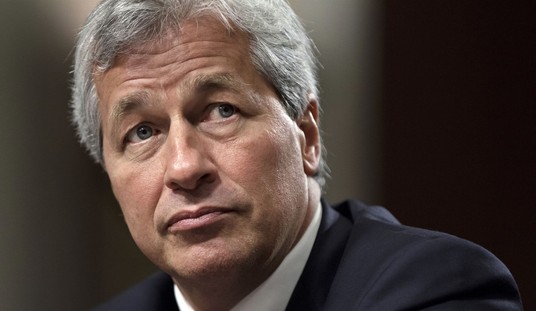The Sunday shows have revived the controversy about President Donald J. Trump’s “s***holes” comment. So before we close the book on the comment, I thought it would be worth taking a step back and evaluating what the real problems with the comment were.
First, let’s talk about what the problems aren’t.
The issue is not that the President used the s-word in private. All presidents and most other humans curse in private.
The issue is not that there are indeed countries in the world that can be described as “s***holes.” Many people have tried to make this the issue, so that Trump can be defended as fearlessly speaking the truth about what other people won’t say. Look at the physical conditions of this country! S***hole! Look at the way that country is run! S***hole!
True enough. But not the point. You don’t get to demonstrate that s***holes exist, do a victory dance, and dust off your hands — because you have missed the point.
The point is that the fact that a country is a bad place to live does not mean its people are bad people. The fact that a country is a s***hole does not mean that immigrants from that country will be s**tty citizens.
Iran is a terrible country. Cuba is an awful country. The American citizens I have met who are immigrants from Iran or Cuba are some of the most solid Americans I know. They are passionate about the ideals of this country in a way that few native-born citizens are. They embody the spirit of American in a deeply significant way. Here’s Ilya Shapiro making a similar point about the USSR:
https://twitter.com/ishapiro/status/952033410993836033
The rhetorical bomb there overstates the case to draw a parallel to a commonly used phrase, but the point is still clear: immigrants from every country on Earth add value to America, regardless of the country they come from. India is not a particularly clean or prosperous country. But India sends us STEM geniuses all the time. I could go on and on.
And the President’s comment sends a message to American citizens who immigrated from “s***hole countries” in general, and African countries in particular, that they are not wanted. That is not presidential, and what’s more, it’s not right.
We can set different standards for the type of people we want to allow into our country. We can insist that they bring something to the table, rather than simply coming because they have relatives here. That’s fair. But we shouldn’t smear the entirety of the citizens of any country or set of countries in the process. That’s not “virtue signaling.” It’s simple common sense and decency.
The second problem with Trump’s s***hole statement is what it reveals about the honesty of the people who attended the meeting. You don’t have to believe every word of what Sanctimonious Dick Durbin said to know that, if Donald Trump referred to any countries as “s***holes,” that would be an attention-grabbing moment that people would remember. Yet we see people who have an incentive to maintain a good relationship with Donald Trump coming out and saying that … they just don’t remember whether it was said. Watch this clip, for instance, of DHS Secretary Kirstjen Nielsen saying she doesn’t remember Trump saying that precise exact specific phrase:
DHS Sec. Kirstjen Nielsen was in the room, but says can't recall whether Trump made "shithole countries" remark pic.twitter.com/lLbijwmlep
— Axios (@axios) January 14, 2018
WALLACE: You were in that meeting in Oval Office. Did the President say that ?
NIELSEN: I don’t recall him saying that exact phrase. I think he has been clear, and I would certainly say undoubtedly, the President will use, will continue to use strong language when it comes to this issue, because he feels very passionate about it.
. . . .
WALLACE: I can understand you either saying they were said or they were not said. It is pretty shocking language, and to say, “I don’t recall” seems implausible. If the President of the United States used the word blankhole, talking about countries in the Oval Office, or didn’t say it, I would know.
NIELSEN: I understand the question. It was an impassioned conversation. I don’t recall that specific phrase being used. That’s all I can say about that.
If it didn’t happen, she would say: “I was there. It didn’t happen. Nothing like that happened.”
She’s either lying, or using a Clintonian parsing of “that specific phrase” to try to mislead the citizens of the country she serves. And the same goes for Republican Sens. Tom Cotton and David Perdue, who also used the “We do not recall the President saying these comments specifically” gambit, combining a professed lack of memory with the weaselly “specifically” caveat.
Let’s state the problem starkly: These people are not being honest.
Look: I understand why they are lying or dissembling. If they admit the truth of what Trump said, Trump will fly into a rage. Nielsen would lose her job if she told the truth. Cotton and Perdue would find themselves personae non grata with Trump, who might run to Twitter and set his base against these Senators. The easy thing to do is to sacrifice what seems to them like just a small bit of their integrity — to find a way to wriggle out of the unpleasant situation without upsetting Dear Leader.
I can already hear Trump supporters telling me to get over it; politicians and political appointees lie, all the time. And that is absolutely true. Shall we abandon all political commentary then? Shall we cease pointing out lies, and rationalize our failure by arguing that everybody lies, so why bother noting it when it happens?
As you ponder that question, understand that the Trump supporter’s stance that he doesn’t care about lies is itself a lie. Tomorrow — hell, probably later today! — that very same Trump supporter will be whining about the lies allegedly told by one of Trump’s opponents, whether it’s Hillary Clinton or Michael Wolff or somebody in the #FAKENEWSMEDIA. Just hours later, lies will be important again. So spare me your “everybody lies” argument, because it is based on a political stance (“I’m too worldly to care about politicians’ lies!”) that is itself dishonest. All this argument is, is a partisan hack’s way of saying “don’t apply to me and to the politicians I like the same standards that I apply to others.” Sorry, guy, not happening.
These, to me, are the problems with Trump’s s***holes comment. I suppose there could be others. Happy Sunday!
UPDATE: Cotton and Perdue are now denying the comment more forcefully:
A Republican senator who attended a Thursday immigration meeting at the White House forcefully denied on Sunday that President Trump had used the phrase “s***hole countries” in describing Haiti and African nations, saying a Democratic senator’s account of the session was “a gross misrepresentation.”
Senator David Perdue, Republican of Georgia, said on ABC’s “This Week” that Mr. Trump “did not use that word,” and accused Senator Richard J. Durbin, Democrat of Illinois, of distorting what the president had said at the meeting, which included more than a half-dozen lawmakers.
Senator Tom Cotton, an Arkansas Republican, joined Mr. Perdue later in the morning in questioning Mr. Durbin.
“I didn’t hear that word either,” he said on CBS’s “Face the Nation.” “And I was sitting no further away from Donald Trump than Dick Durbin was.”
I’d say it’s time to ask Lindsey Graham directly. I have not seen the segments, so I don’t know if the Senators were asked why their initial statement was so mealy-mouthed.
UPDATE x2: Rich Lowry says his sources tell him the word Trump said was “s***house” and not “s***hole.” Now run back to Perdue, Cotton, and Nielsen, and ask them if he said that. If they totally dodge the question, you’ll know why they got so cute about denying remembering that exact precise phrase. If Lowry is right, their comments are not honesty, but Clintonian nonsense. Non-partisans have been able to tell they were hiding something.













Join the conversation as a VIP Member